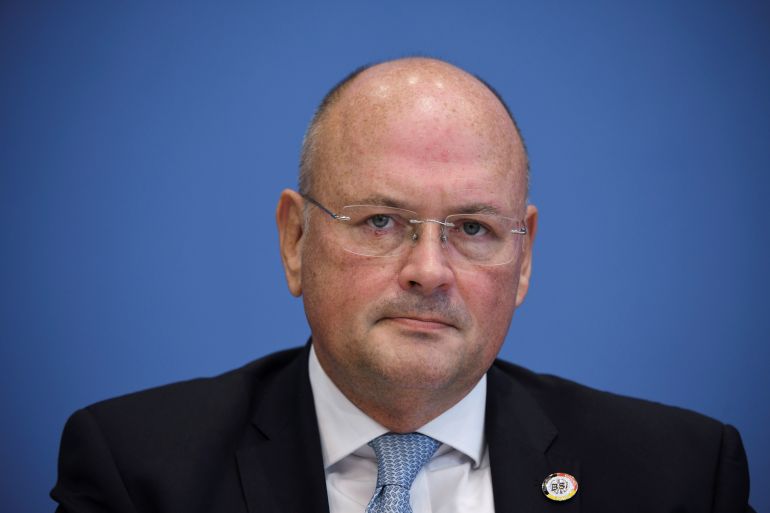Germany dismisses cybersecurity chief over alleged Russian ties
Arne Schoenbohm relieved of duties after media outlets report possible connections with Russian intelligence.

Germany’s government has sacked its cybersecurity chief after reports of possible ties with Russian intelligence.
An interior ministry spokesperson said on Tuesday that Arne Schoenbohm had been relieved of his duties as president of the Federal Office for Information Security with immediate effect.
Keep reading
list of 3 itemsEU nations announce measures to curb soaring energy prices
Why is Poland demanding compensation from Germany?
Media outlets reported last week that Schoenbohm could have had contacts with people involved with Russian security services through the Cyber Security Council of Germany.
The group brings together experts from public institutions and the private sector, and Schoenbohm co-founded it in 2012. Media reports said one of its members is a German company that is a subsidiary of a Russian cybersecurity firm founded by a former KGB employee.
The group, which describes itself as politically neutral, has rejected such connections as absurd.
Schoenbohm, who had been head of the German cybersecurity agency since 2016, has not commented on the reports so far. There was no immediate word on who would succeed the 53-year-old.
The interior ministry said the decision to replace Schoenbohm was in the interests of the agency’s 1,500 employees and their ability to work without speculation about the personnel issue, the German news agency dpa reported.
“The background to this is not least the allegations, which are well known and widely discussed in the media and which have permanently damaged the necessary public confidence in the neutrality and impartiality of the conduct of his office as president of Germany’s most important cybersecurity authority,” a ministry spokesperson said.
Having said that, the ministry said it would “thoroughly investigate all known accusations”.
Germany has in recent years repeatedly accused Russia of cyber espionage attempts.
The most high-profile incident blamed on Russian hackers to date was a cyberattack in 2015 that paralysed the computer network of the lower house of parliament, the Bundestag, forcing the entire institution offline for days while it was fixed.
Russia denies being behind such actions.
Tensions between Russia and Germany have only intensified since Moscow’s invasion of Ukraine in late February.
Schoenbohm’s former agency has warned that companies, individuals and critical infrastructure are at risk of being hit by Russian cyberattacks.